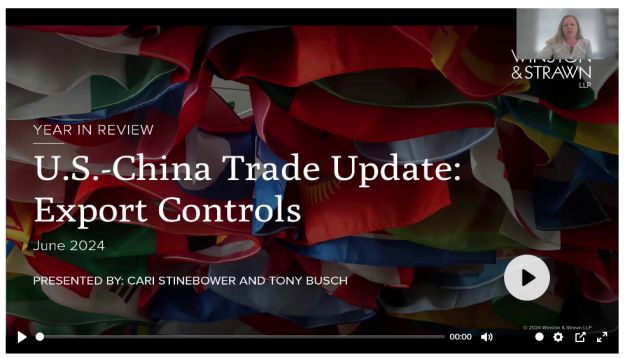Winston & Strawn's International Trade practice attorneys are dedicated to providing our clients with the most up-to-date guidance on all areas of International Trade. Our team actively monitors hot-button and politically sensitive trade developments, such as the current, rapidly evolving regulations emerging between the U.S. and China, and assists our clients in navigating issues that may arise from these changes.
As a resource to our clients, our global team—which includes attorneys resident in China—has designed a mini-series of presentation recordings outlining recent international trade updates between the U.S. and China in key areas. The first of these recordings, linked below, focuses on export controls, with a brief overview on sanctions and legislative developments. Please contact our team if your company would like assistance addressing these developing issues.
PRESENTATION HIGHLIGHTS
- Developing U.S. regulations increasingly impose controls on China trade related to: semiconductors, clean energy (particularly electric vehicles), data transfer, AI, technology, and land purchases near U.S. military bases. There are also soon-to-be-released "Infrastructure as a Service" regulations.
- The U.S. is striving to develop a strategy to achieve "critical mineral independence" from China, as well as Russia, Iran, and North Korea, as referenced in the 2024 National Defense Authorization Act.
- U.S. regulators are demonstrating a marked focus on financial institutions' responsibilities and expectations with respect to export control evasion.
- Clients and their legal teams should be prepared to address increased sanctions on China in the event of escalating tensions with the Taiwan SAR.
The content of this article is intended to provide a general guide to the subject matter. Specialist advice should be sought about your specific circumstances.




